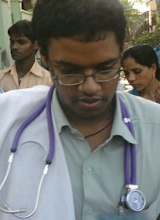Using an exhaustive hospital checklist prevents errors and cuts the risk of death nearly in half for patients who come in for surgery, researchers reported on Wednesday.
The system also reduced the number of complications by one-third, they reported in the New England Journal of Medicine. The study adds to growing evidence that checklists can save trouble, lives and money in hospitals.
"Checklists could avert tens of thousands of surgical deaths and hundreds of thousands of serious complications every year in the United States," Dr. John Birkmeyer of the University of Michigan wrote in a commentary.
"Checklists seem to have crossed the threshold from good idea to standard of care."
The study involved 11 hospitals in the Netherlands, six of which adopted a system that required everyone caring for a surgery patient to mark whether they had checked a key factor in the process.
The rate of complications at the hospitals using checklists dropped by 31 percent per patient and the death rate fell from 1.5 percent to 0.8 percent. The rates were unchanged at the five control hospitals.
"Every type of complication was decreased," Dr. Marja Boermeester of the Academic Medical Center in Amsterdam said in a telephone interview. "This is a definite step toward their use in the entire surgical pathway."
The research team found the death and complication rates were lowest when staff adhered most closely to the checklists.
Researchers said in May a list developed for surgery by the World Health Organization cut the chance of major complications by 36 percent. But most errors occur before or after the operation.
Items on the checklist include marking the site of the surgery, accounting for all equipment used in an operation and providing the patient with the proper prescriptions before being sent home.
"The checklist may lead to improved outcomes by improving teamwork, communication, and attitudes toward quality and safety," the Dutch researchers wrote. "By providing a blueprint of the ideal situation, the system reveals safety risks and triggers improvements in all stages of the surgical pathway."
source- Reuters health

0 comments:
Post a Comment